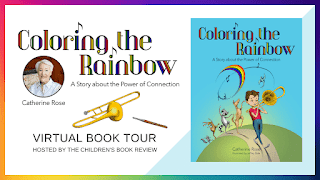The Chameleon by David Farrell
Today I have a historical fiction book for you. The Chameleon is available now at your favorite book retailer and free on Kindle Unlimited. Sometimes I like to preview the book to see if it fits my taste so if you are like me, I have an excerpt for you. But first, about the book.
The Chameleon is the tale of Rorke Wilde, who grows up in
Rhodesia. Rorke’s needs to mimic his pet chameleon, if he is to survive the
racial discourse in a country divided by apartheid during the 1970s.
Rorke’s father works in the British South Africa Police
while his mother is a clerk in the tax office. His best friend and father
figure is the family’s domestic worker, Themba Dube, an AmaNdebele of Zulu
descent. Who guides Rorke through the turmoil of civil bias.
Themba introduces Rorke to his nephew Lucky Ndlovu, who lost
his parents in the AIDS pandemic and who lives with his grandmother in a
squatter camp (informal settlements) in Johannesburg.
The old man and boy share their experiences of a life of
poverty post-independence where Rorke learns about the real Africa that he once
saw through Panglossian glasses.
Excerpt
My name is Rorke Wilde. Most call me Rory. I have no other
names and my parents offer no explanation why. My sister Cara Evelyn Wilde
does, but, that I am told is because Mum and Dad couldn’t make up their minds.
We are of Irish descent, but I’m not sure what that means.
The family is from Belfast, the capital of Northern Ireland. That’s all I know,
apart from history lessons and the briefest time when we lived there in 1972,
but I digress. I will return to that later.
I was born in Gatooma. A pastoral town swathed in gold dust
from nearby mines and the swirling lint of the cotton plantations. Small enough
for everybody to know your business, but of a size they could turn a blind eye
to if they so choose. It mirrored many of the settlements in the colony of
Southern Rhodesia three years before the unilateral declaration of independence
from the United Kingdom. My father became an officer in the British South
Africa Police and my Welsh mother worked at the tax office in their dream of
life in a far-off land.
This is my story of how history touched me. It’s not about
clichéd heroes who triumph over wrong in a predictable plot, but of a reality
of life at the end of colonialism in Southern Africa.
I don’t have many friends. I am a follower of nature,
happier with animals and the sanctity of Mother Earth.
Why, you ask?
Animals are without deceit or greed. History books depict the author’s sway. Memoirs affords a perspective whilst historical fiction covers a commercial need. The truth lies elsewhere.



Comments
Post a Comment